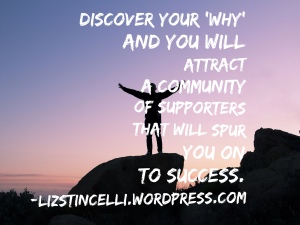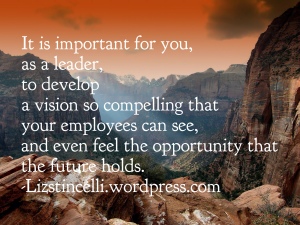“One rare and exceptional deed is worth far more than a thousand commonplace ones.” —Saint Ignatius
By Elizabeth Stincelli, DM
Exceptional Leadership
Exceptional leadership is not about you, it’s about those who follow you. It is the responsibility of the leader to steer the ship. But, an exceptional leader goes beyond just setting the course, they help their team to shape their ideas into something meaningful and then empower and encourage them to see their ideas come to fruition. Exceptional leaders focus on helping others achieve success. They have a strong sense of purpose and communicate that purpose to others through their words and actions. They develop strong relationships built on trust and respect. And, they engage others in their purpose by providing meaningful work and opportunities that inspire others to become the best they can be. Start working on becoming an exceptional leader today.
Communication
Rollo May believed that, “Communication leads to community, that is, to understanding, intimacy, and mutual valuing.” Exceptional leaders understand the value of open communication in building a trusting, safe environment where employees feel their ideas and contributions are valued. This type of environment fosters as sense of community and the collaboration necessary for true innovation and success. Exceptional leaders use conversations to build connections by giving others their undivided attention. They use conversations as a means of provoking questions not providing answers. This allows them to incorporate the contributions from a variety of sources into one, awesome idea.
Trust
Stephen Covey tells us, “Trust is the glue of life. It’s the most essential ingredient in effective communication. It’s the foundational principle that holds all relationships.” Exceptional leaders are authentic, approachable, and compassionate. They empathize with others on a deep and personal level. We trust people who share our values, who do what they say they will do, who authentically invest in our relationship, and who treat us as they wish to be treated. Exceptional leaders understand that without trust they have little or no influence.
Engagement
Ian K. Smith said, “I think happiness is a combination of pleasure, engagement, and meaningfulness.” Exceptional leaders understand that everyone wants to feel engaged and of value. People want to know there is a purpose to their tasks, to be given control over their work, and to be encouraged to make it their own. Exceptional leaders see the value of the skills, experience, and knowledge that employees throughout the organization have to offer. They provide meaning and create opportunities for employee to engage in contributing to a purpose that speaks to them on an individual level.
Become an Exceptional Leader
Exceptional leaders bring people under a common purpose and then allow them to create their own ideas and provide the support they need to flourish. People will follow an individual in a position of authority because they have to; they will follow an exceptional leader because they want to. Commit to becoming an exceptional leader; build open communication, earn trust, and encourage engagement. You will make a difference in the lives of those who follow you and they will reward you with the loyalty and support you need to bring your leadership vision to life.
© 2015 Elizabeth Stincelli
Elizabeth Stincelli is passionate about recognizing and inspiring the leader in each of us. She is the CEO of Stincelli Advisors where she focuses on helping organizations engage employees and improve organizational culture. Elizabeth holds a Doctor of Management degree with an emphasis on organizational leadership.
Learn more about Elizabeth by visiting her website, stincelliadvisors.com and connect with her on Twitter @infinitestin, Google+, and LinkedIn. You can contact her by email at stincelliadvisors@gmail.com.










